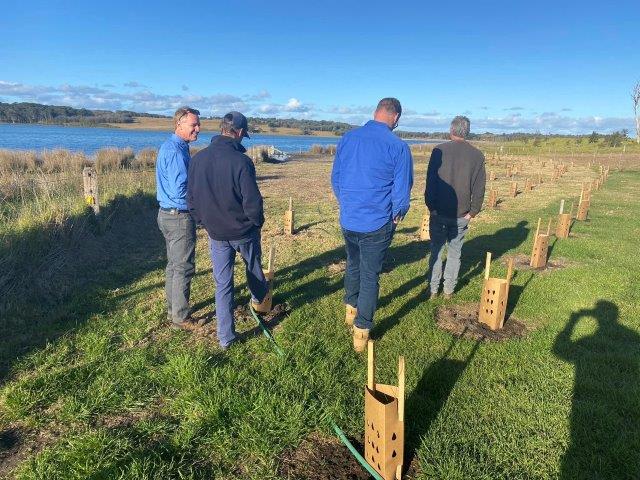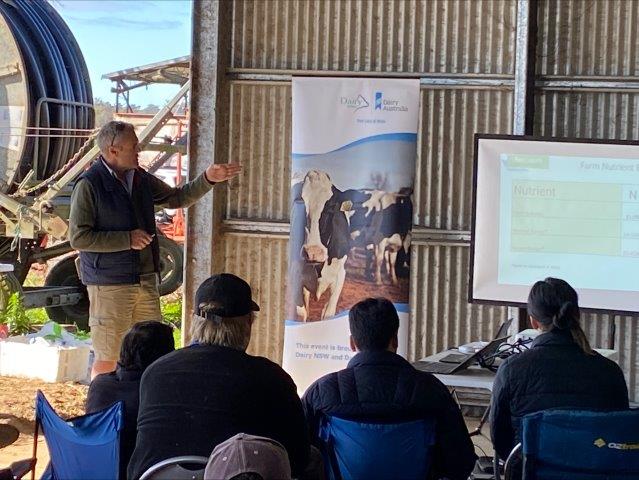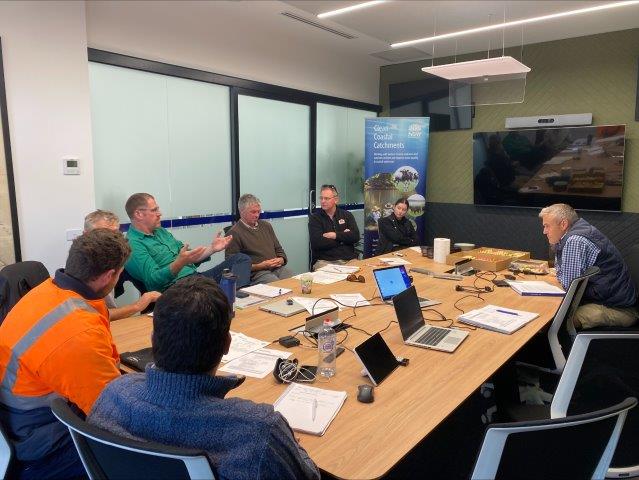
Collaborating with the dairy industry to cut farm costs and diffuse pollution
1 July 2023

The Clean Coastal Catchments (CCC) Research project is working closely with the south coast dairy industry to save farmers money and reduce their impact on the environment.
The CCC Research team from the NSW Department of Primary Industries (DPI) is collaborating with stakeholders to facilitate better fertiliser management through the Fert$mart program, an initiative designed to help farmers improve soil health and make more informed and cost effective decisions about fertiliser application.
More than 70 farmers and advisors have attended Fert$mart workshops at Bega, Brogo and Bodalla, coordinated by Dairy NSW in partnership with NSW DPI.
At the Bodalla workshop, Tim Williams from Agrimilk Consulting, discussed the impressive potential savings that can be achieved through Fert$mart planning. “A Fert$mart plan prepared for Bodalla dairy farm, Yattarna, has identified annual savings of up to $300 per hectare,” explained Tim.
The plan revealed that farmer Vanessa Todd could dramatically reduce the need to buy in costly synthetic fertilisers by utilising the nutrient content in dairy effluent. While fertiliser prices at the time of publication in 2023 had dropped from last year’s record highs, prices are still almost double the five-year average prior to 2022, according to the ruralbank.com.au website.

Systematic soil testing, a key feature of the Fert$mart program, found phosphorus levels were adequate on Yattarna. The test results indicate that no further applications of expensive phosphorous based fertilisers are currently required. Reducing additional phosphorous applications will not only cut farm costs but will also reduce the amount of excess nutrients that could wash off the farm into local waterways after heavy rainfall.
Phosphorus and nitrogen pollution flowing off farms can lead to toxic algal blooms downstream that endanger fish and other aquatic life. The CCC Research project works with growers to keep sediment and nutrients on farm and out of coastal waterways while supporting profitable and sustainable agriculture.
While more phosphorous could eventually be required in years to come, future fertiliser decisions on Yattarna will be built on Fert$mart principles. “Going forward the farm may again need some phosphorous applications, but this will be based on our continued monitoring of soil health, production requirements and the overall health of the farming operation, via Fert$mart planning,” said Vanessa.

The Fert$mart program was developed by Dairy Australia and has been delivered on the South Coast in partnership with NSW DPI, Local Land Services and the Bega Group.
The CCC Research team has also been working with farmers and advisors to shape research plans for the next five years, with the first meeting of the CCC Dairy Demo Farm working group held in Bega in June. The group is already delivering great insights and feedback to CCC Research and Development Officer, Luke Jewell, and NSW DPI Soil Chemistry Research Officer,Simon Clarendon.
The Dairy Demo Farm working group is a new initiative for the CCC project on the south coast aimed at ensuring CCC livestock research objectives are relevant to the local region.
The CCC Research project is funded through the NSW Government’s Marine Estate Management Strategy to improve water quality for our ocean, estuaries, and coastal wetlands.

